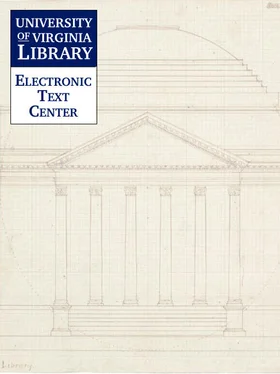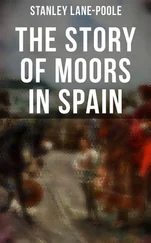Hendrik Loon - The Story of Mankind
Здесь есть возможность читать онлайн «Hendrik Loon - The Story of Mankind» весь текст электронной книги совершенно бесплатно (целиком полную версию без сокращений). В некоторых случаях можно слушать аудио, скачать через торрент в формате fb2 и присутствует краткое содержание. Год выпуска: 2000, Издательство: Electronic Text Center. University of Virginia Library., Жанр: Старинная литература, на английском языке. Описание произведения, (предисловие) а так же отзывы посетителей доступны на портале библиотеки ЛибКат.
- Название:The Story of Mankind
- Автор:
- Издательство:Electronic Text Center. University of Virginia Library.
- Жанр:
- Год:2000
- ISBN:нет данных
- Рейтинг книги:3 / 5. Голосов: 1
-
Избранное:Добавить в избранное
- Отзывы:
-
Ваша оценка:
- 60
- 1
- 2
- 3
- 4
- 5
The Story of Mankind: краткое содержание, описание и аннотация
Предлагаем к чтению аннотацию, описание, краткое содержание или предисловие (зависит от того, что написал сам автор книги «The Story of Mankind»). Если вы не нашли необходимую информацию о книге — напишите в комментариях, мы постараемся отыскать её.
The Story of Mankind — читать онлайн бесплатно полную книгу (весь текст) целиком
Ниже представлен текст книги, разбитый по страницам. Система сохранения места последней прочитанной страницы, позволяет с удобством читать онлайн бесплатно книгу «The Story of Mankind», без необходимости каждый раз заново искать на чём Вы остановились. Поставьте закладку, и сможете в любой момент перейти на страницу, на которой закончили чтение.
Интервал:
Закладка:
This economic development of the world was perfectly natural. The increasing number of factories in England and France and Germany needed an ever increasing amount of raw materials and the equally increasing number of European workers needed an ever increasing amount of food. Everywhere the cry was for more and for richer markets, for more easily accessible coal mines and iron mines and rubber plantations and oil-wells, for greater supplies of wheat and grain.
The purely political events of the European continent dwindled to mere insignificance in the eyes of men who were making plans for steamboat lines on Victoria Nyanza or for railroads through the interior of Shantung. They knew that many European questions still remained to be settled, but they did not bother, and through sheer indifference and carelessness they bestowed upon their descendants a terrible inheritance of hate and misery. For untold centuries the south-eastern corner of Europe had been the scene of rebellion and bloodshed. During the seventies of the last century the people of Serbia and Bulgaria and Montenegro and Roumania were once more trying to gain their freedom and the Turks (with the support of many of the western powers), were trying to prevent this.
After a period of particularly atrocious massacres in Bulgaria in the year 1876, the Russian people lost all patience. The Government was forced to intervene just as President McKinley was obliged to go to Cuba and stop the shooting-squads of General Weyler in Havana. In April of the year 1877 the Russian armies crossed the Danube, stormed the Shipka pass, and after the capture of Plevna, marched southward until they reached the gates of Constantinople. Turkey appealed for help to England. There were many English people who denounced their government when it took the side of the Sultan. But Disraeli (who had just made Queen Victoria Empress of India and who loved the picturesque Turks while he hated the Russians who were brutally cruel to the Jewish people within their frontiers) decided to interfere. Russia was forced to conclude the peace of San Stefano (1878) and the question of the Balkans was left to a Congress which convened at Berlin in June and July of the same year.
This famous conference was entirely dominated by the personality of Disraeli. Even Bismarck feared the clever old man with his well-oiled curly hair and his supreme arrogance, tempered by a cynical sense of humor and a marvellous gift for flattery. At Berlin the British prime-minister carefully watched over the fate of his friends the Turks. Montenegro, Serbia and Roumania were recognised as independent kingdoms. The principality of Bulgaria was given a semi-independent status under Prince Alexander of Battenberg, a nephew of Tsar Alexander II. But none of those countries were given the chance to develop their powers and their resources as they would have been able to do, had England been less anxious about the fate of the Sultan, whose domains were necessary to the safety of the British Empire as a bulwark against further Russian aggression.
To make matters worse, the congress allowed Austria to take Bosnia and Herzegovina away from the Turks to be ``administered'' as part of the Habsburg domains. It is true that Austria made an excellent job of it. The neglected provinces were as well managed as the best of the British colonies, and that is saying a great deal. But they were inhabited by many Serbians. In older days they had been part of the great Serbian empire of Stephan Dushan, who early in the fourteenth century had defended western Europe against the invasions of the Turks and whose capital of Uskub had been a centre of civilisation one hundred and fifty years before Columbus discovered the new lands of the west. The Serbians remembered their ancient glory as who would not? They resented the presence of the Austrians in two provinces, which, so they felt, were theirs by every right of tradition.
And it was in Sarajevo, the capital of Bosnia, that the archduke Ferdinand, heir to the Austrian throne, was murdered on June 28 of the year 1914. The assassin was a Serbian student who had acted from purely patriotic motives.
But the blame for this terrible catastrophe which was the immediate, though not the only cause of the Great World War did not lie with the half-crazy Serbian boy or his Austrian victim. It must be traced back to the days of the famous Berlin Conference when Europe was too busy building a material civilisation to care about the aspirations and the dreams of a forgotten race in a dreary corner of the old Balkan peninsula.
A NEW WORLD
THE GREAT WAR WHICH WAS REALLY THE STRUGGLE FOR A NEW AND BETTER WORLD
THE Marquis de Condorcet was one of the noblest characters among the small group of honest enthusiasts who were responsible for the outbreak of the great French Revolution. He had devoted his life to the cause of the poor and the unfortunate. He had been one of the assistants of d'Alembert and Diderot when they wrote their famous Encyclopédie. During the first years of the Revolution he had been the leader of the Moderate wing of the Convention.
His tolerance, his kindliness, his stout common sense, had made him an object of suspicion when the treason of the king and the court clique had given the extreme radicals their chance to get hold of the government and kill their opponents. Condorcet was declared ``hors de loi,'' or outlawed, an outcast who was henceforth at the mercy of every true patriot. His friends offered to hide him at their own peril. Condorcet refused to accept their sacrifice. He escaped and tried to reach his home, where he might be safe. After three nights in the open, torn and bleeding, he entered an inn and asked for some food. The suspicious yokels searched him and in his pockets they found a copy of Horace, the Latin poet. This showed that their prisoner was a man of gentle breeding and had no business upon the highroads at a time when every educated person was regarded as an enemy of the Revolutionary state. They took Condorcet and they bound him and they gagged him and they threw him into the village lock-up, but in the morning when the soldiers came to drag him back to Paris and cut his head off, behold! he was dead.
This man who had given all and had received nothing had good reason to despair of the human race. But he has written a few sentences which ring as true to-day as they did one hundred and thirty years ago. I repeat them here for your benefit.
``Nature has set no limits to our hopes,'' he wrote, ``and the picture of the human race, now freed from its chains and marching with a firm tread on the road of truth and virtue and happiness, offers to the philosopher a spectacle which consoles him for the errors, for the crimes and the injustices which still pollute and afflict this earth.''
The world has just passed through an agony of pain compared to which the French Revolution was a mere incident. The shock has been so great that it has killed the last spark of hope in the breasts of millions of men. They were chanting a hymn of progress, and four years of slaughter followed their prayers for peace. ``Is it worth while,'' so they ask, ``to work and slave for the benefit of creatures who have not yet passed beyond the stage of the earliest cave men?''
There is but one answer.
That answer is ``Yes!''
The World War was a terrible calamity. But it did not mean the end of things. On the contrary it brought about the coming of a new day.
It is easy to write a history of Greece and Rome or the Middle Ages. The actors who played their parts upon that long-forgotten stage are all dead. We can criticize them with a cool head. The audience that applauded their efforts has dispersed. Our remarks cannot possibly hurt their feelings.
But it is very difficult to give a true account of contemporary events. The problems that fill the minds of the people with whom we pass through life, are our own problems, and they hurt us too much or they please us too well to be described with that fairness which is necessary when we are writing history and not blowing the trumpet of propaganda. All the same I shall endeavour to tell you why I agree with poor Condorcet when he expressed his firm faith in a better future.
Читать дальшеИнтервал:
Закладка:
Похожие книги на «The Story of Mankind»
Представляем Вашему вниманию похожие книги на «The Story of Mankind» списком для выбора. Мы отобрали схожую по названию и смыслу литературу в надежде предоставить читателям больше вариантов отыскать новые, интересные, ещё непрочитанные произведения.
Обсуждение, отзывы о книге «The Story of Mankind» и просто собственные мнения читателей. Оставьте ваши комментарии, напишите, что Вы думаете о произведении, его смысле или главных героях. Укажите что конкретно понравилось, а что нет, и почему Вы так считаете.












